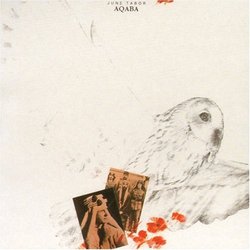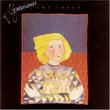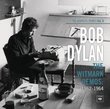| All Artists: June Tabor Title: Aqaba Members Wishing: 2 Total Copies: 0 Label: Topic Original Release Date: 1/1/2008 Re-Release Date: 11/7/2008 Album Type: Import Genres: Country, Folk, International Music, Rock Styles: Bluegrass, Traditional Folk, British & Celtic Folk, Contemporary Folk, Folk Rock Number of Discs: 1 SwapaCD Credits: 1 |
Search - June Tabor :: Aqaba
 | June Tabor Aqaba Genres: Country, Folk, International Music, Rock
Released in 1988, Aqaba is a triumph of form and content, the tone of the whole album being quiet and melancholic with June's voice maturing into a richer, deeper register. Aqaba is many people's favorite June Tabor album. |
Larger Image |
CD DetailsSynopsis
Product Description Released in 1988, Aqaba is a triumph of form and content, the tone of the whole album being quiet and melancholic with June's voice maturing into a richer, deeper register. Aqaba is many people's favorite June Tabor album. Similar CDs
|
CD ReviewsJune Tabor - England's best folk voice Cowboy Bill | Omaha, NE USA | 05/29/2001 (5 out of 5 stars) "This might not be Ms. Tabor's most popular recording, but it's by far my favorite. The tone of the entire CD is quiet and melancholic -- the arrangements are simple, a perfect setting for Tabor's magnificent voice.I'm not necessarily one for sentimental songs, but tunes on this album like "The King of Rome" (about a poor man and his prized homing pigeon), "Where Are You Tonight?" (a plaintive cry to a lost love) and "Seven Summers" (about a child who looks forward to summer but misses out due to inclement weather) just break my heart. Just as good are the traditionally English-sounding numbers like "The Reaper" and "The Banks of Red Roses," as well as an unforgettable Jewish song, "Mayn Rue Plats" (I'm not sure what it's about but the melody is haunting). And the title track about Lawrence of Arabia's dying moments is killer.Seriously, I have had to buy this album three times because every time I lend it out it doesn't come back. And I don't mind -- I love turning people on to this outstanding disk." A Brilliant showcase for a stunning voice KSG | New York, NY United States | 12/18/2001 (5 out of 5 stars) "June Tabor's vibratoless voice will haunt you. It seems to come from a well deep inside her soul. This collection of songs is hard to classify, she sings 10,000 Maniac's Verdi Cries and then moves onto a 19th century Yiddish dirge about the plight of sweatshop workers. The instrumentation is sparse, sometimes jazz, then folk and then silent as she sings acappella. At times I think of June Tabor as a troubadour and then she becomes a jazz crooner. I highly recommend her to fans of Joni Mitchell." Contemplating the world SuZen | NJ United States | 09/27/2001 (5 out of 5 stars) "I first heard June Tabor sing the music of this album live, at a little folk venue near my town. The place holds about 200 people, but there were about 400 packed in to hear her, and the entire audience (including me) was rapt. With only a sparse piano accompaniment, she was spellbinding. These are moody, quiet songs but June's voice and presence hold your attention completely. June is one of very few artists of folk music origin who can sing both traditional and contemporary tunes on the same album with equally high quality. You don't have to be a folkie to love this music."
|

 Track Listings (12) - Disc #1
Track Listings (12) - Disc #1



